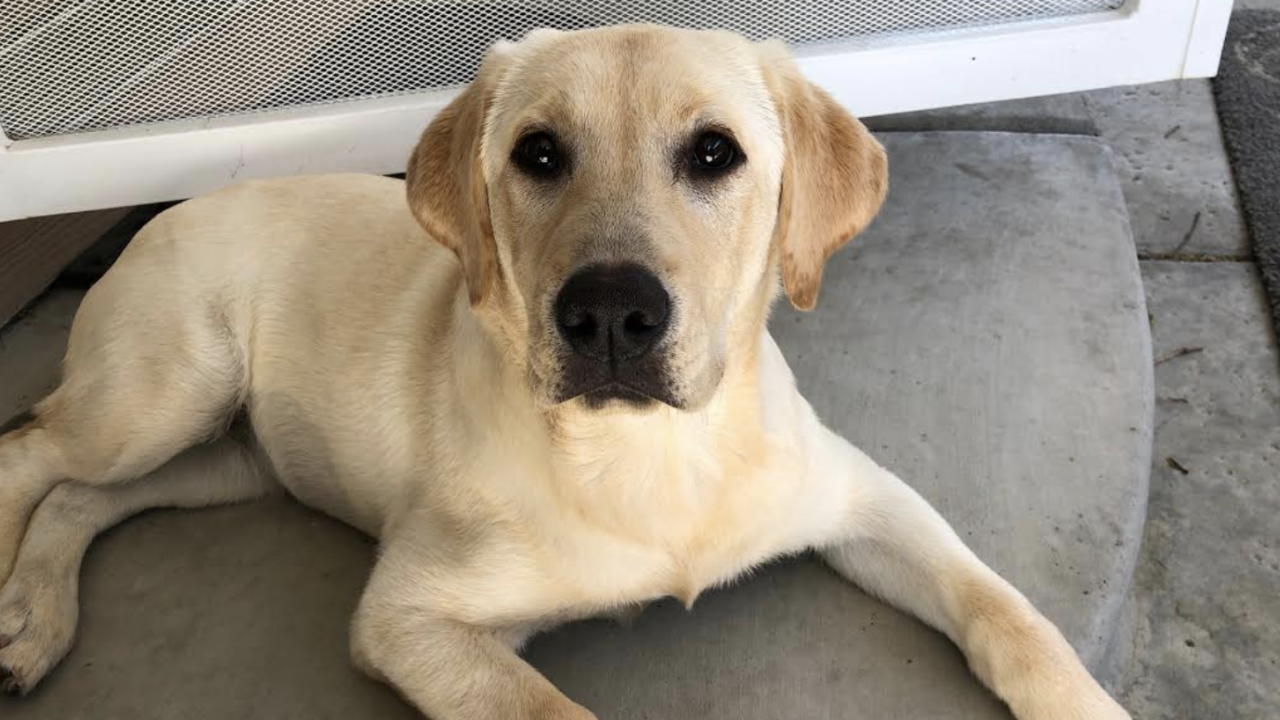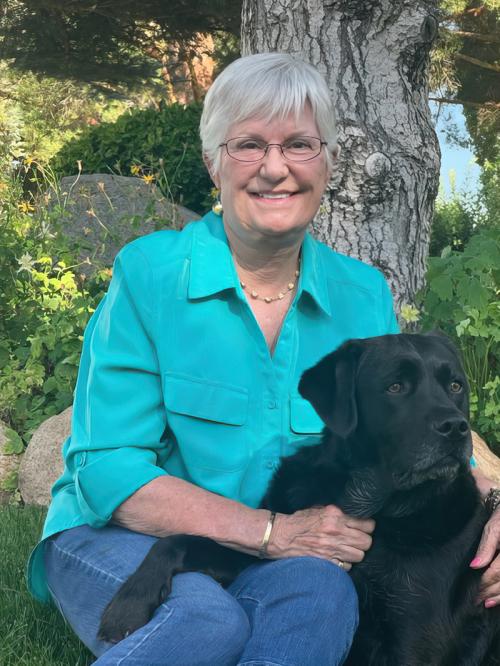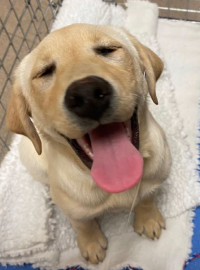
Laser Upgrade
Advances Less Invasive Treatment
This article first appeared in the Fall 2023 issue of CCAH Update
Partners in Improving the Lives of Animal Companions
Barbi McCoy describes Bear, her beloved English Labrador retriever and companion of five years, as a total lap dog with a million-dollar personality. Despite his 70 pounds, Bear’s favorite activity is relaxing with her on the recliner.

Devoted animal lovers, Barbi and her husband Gary have enjoyed the companionship of eight other retrievers since they were married 41 years ago. Horses also have a special place in Barbi’s heart since she competed in the equestrian sport of show jumping for more than 55 years.
When their dog Fiji passed away in 2018, her veterinarian Dr. Nicole Milici DVM ’07 at the Bishop Veterinary Hospital in Bishop, California made a thoughtful donation in her honor to the Companion Animal Memorial Fund at the CCAH. It was then that they learned about the CCAH’s work to improve the lives of animal companions.
“We appreciate UC Davis for their excellence in veterinary medicine and unparalleled educational and training opportunities for students who become outstanding veterinarians like Dr. Milici,” Barbi said. “Animals bring us so much joy. We want to do whatever we can to advance their health by supporting the latest equipment.”
Each year since 2020, the McCoys have faithfully supported the CCAH Equipment Grants Program and made possible the acquisition of many pieces of vital equipment. One example is the Odyssey 30 Holmium Laser System that upgraded existing laser technology used by internal medicine specialists Drs. Carrie Palm and Jodi Westropp. The new laser can be used in minimally invasive procedures for common urological disorders such as ectopic ureters, bladder stones, and sometimes tumors.
“The best care starts with people working in teams to come up with new ideas on how to fight disease and improve health,” said CCAH Director Michael Kent. “To do this, our faculty, residents, researchers and students need the best equipment. We are immensely grateful to Barbi and Gary for their partnership in making this possible.”
Aubrey, an adorable Labrador retriever, suffered from incontinence since her birth in 2020. Because adopters were reluctant to deal with this messy condition, Aubrey was surrendered to a rescue.
She was ultimately diagnosed with an ectopic ureter (an abnormal tube from kidney to bladder). These congenital abnormalities cause urine to be carried to the urethra (the tube from the bladder to the outside) instead of the bladder and cause incontinence. To correct this disorder, veterinarians use a laser to move the ureter openings to a more typical location near the neck of the bladder. For Aubrey, this resolved her leaking urine and she was soon adopted.

Internal medicine specialists Drs. Carrie Palm and Jodi Westropp primarily use this laser technology—recently upgraded, thanks to a CCAH donation by Barbi McCoy—in minimally invasive procedures to treat common problems of the urinary tract such as ectopic ureters, bladder stones, and some tumors. Without the laser, surgery would be needed which is more involved and invasive.
With bladder stones, which are formed when minerals in the urine solidify, the laser is used to break them into tiny fragments that can be flushed out without surgery. Minimally invasive procedures generally cause less pain and lead to faster recovery times and fewer complications.
This laser equipment has also been effective in humans for the correction of stenotic nares (pinched nostrils) and the removal of non-cancerous granulomas that obstruct the throat. Both conditions are common in brachycephalic dogs, so expansion of this technology may prove useful to treat these and other canine respiratory issues.
While some university teaching hospitals have this type of equipment, there are only a few private veterinary hospitals in California that offer this treatment. Since the obtaining this laser technology, UC Davis has been at the forefront of providing these minimally invasive treatments that avoid invasive surgeries. Thanks to this generous donation, dogs like Aubrey will benefit from top-notch care for many years to come.
# # #
